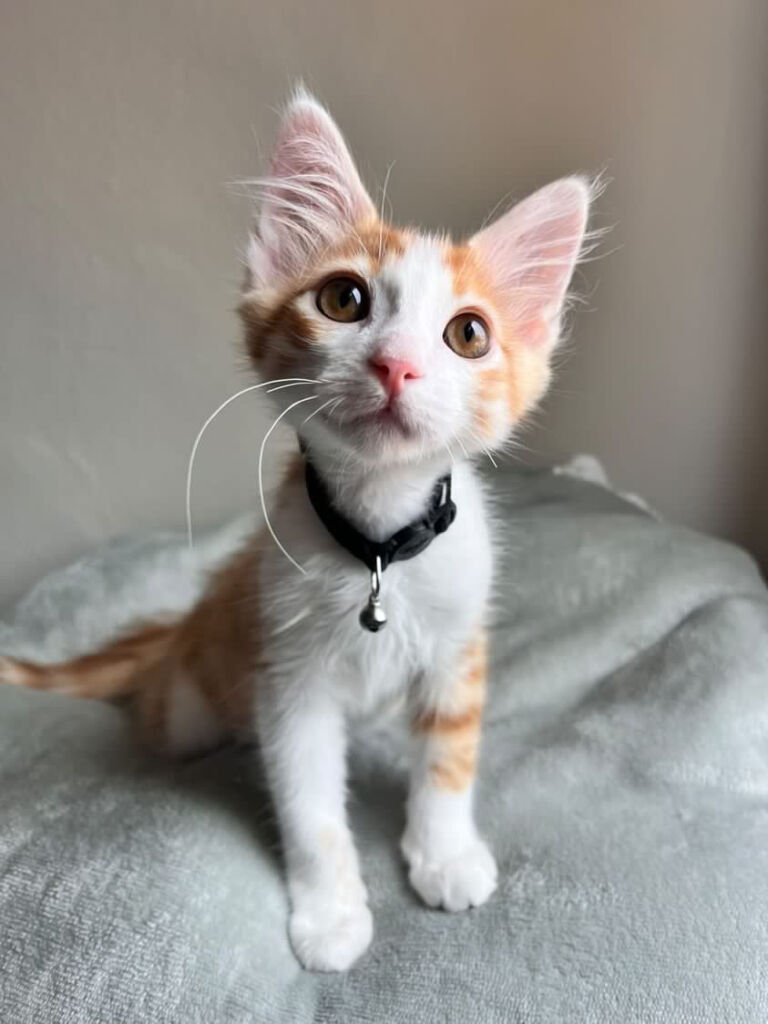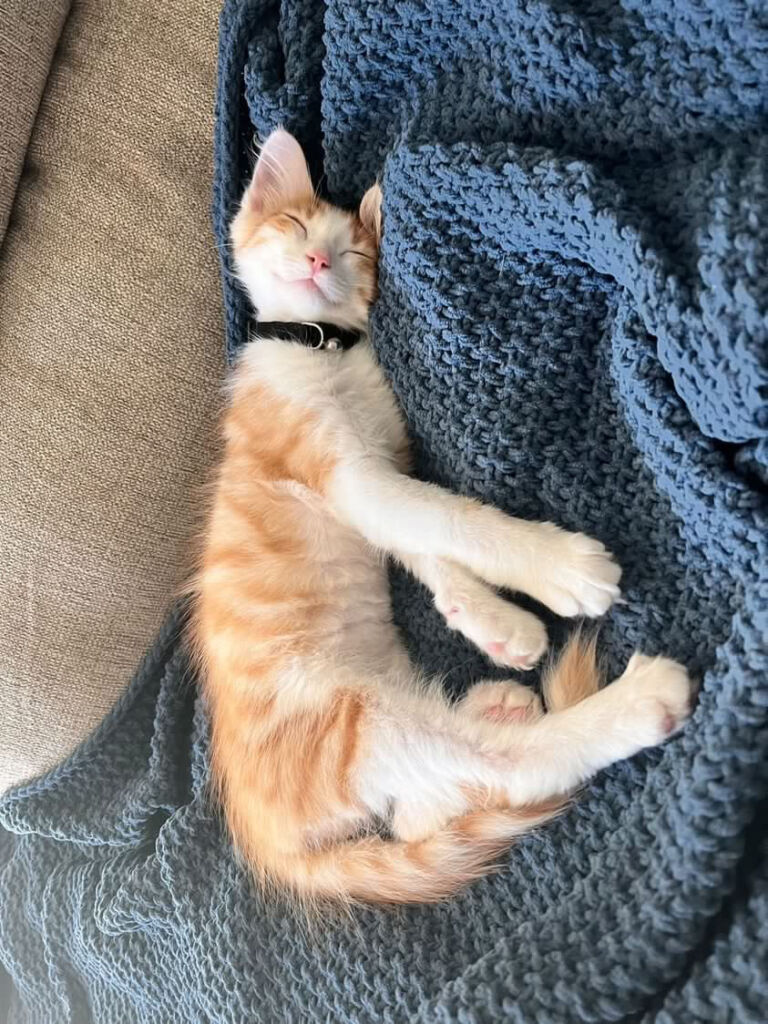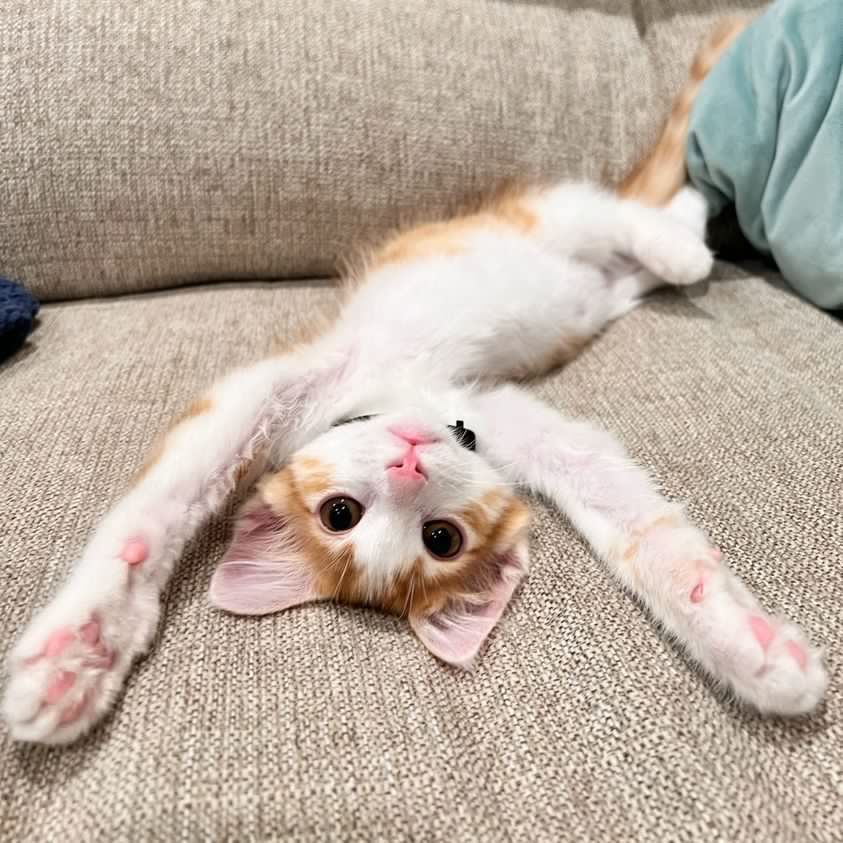How to make the kitten fostering experience smooth, rewarding, and fun
Written By Roshanne K.
Whether you’re already a kitten foster parent or are thinking about becoming one, this article will give you the advice you need to make the experience a fulfilling one. As a cat lover, you’re already halfway there!
Set up a home base for your kittens

When you bring your kittens home, they should be confined to a small space such as a bathroom or laundry room, where they will eat, play, use the litter box, sleep, etc. After several days, when the kittens appear confident and comfortable in this room, and especially if they seem eager to explore outside the room, they can be let out.
During the time the kittens are familiarizing themselves with your home, this small space will be their safe spot where they can go if they are overwhelmed, scared, or just want to rest or reset. Even weeks into the fostering period, the kittens may return to this space to nap or play.
Because this is the most important room for your kittens, make sure to always keep the space clean, comfortable, and filled with the right toys! This space will continue to be the kittens’ home base throughout the entire foster period and will be a source of comfort and familiarity to them. This will also allow you to keep the kittens in this room when you leave the house, knowing they are safe and at ease in a familiar space.
Implement a consistent routine for your foster kittens
Unpredictable stressors can cause cats unnecessary and undue stress. It is important to keep a consistent, predictable routine your kittens can depend on. Try to put them to sleep at night and let them out in the morning at consistent times each day. If you are administering medication, giving a small treat after the medicine can help ease the process.
Other consistent routines can include:
- Feeding the kittens in the same area of the house (preferably the safe room) for each feeding;
- Feeding the kittens with the same kind of food for each feeding;
- Giving the kittens treats after you’ve been out of the house for a few hours, or after giving them medications;
- Engaging in playtime and cuddle time with the kittens each day.
In fact, playtime and cuddle time with your foster kittens is a must! It is usually the most enjoyable part of fostering. Sufficient play time allows your kittens to release energy and learn how to interact with other kittens, and cuddle time allows the kittens to bond with you as a human and receive and express love. These skills will allow the kittens to thrive in their future adoptive homes.
Get your foster kittens accustomed to household noises and objects

A realistic adoptive home will involve noises such as the television, laundry machine, dishwasher, shower/bathroom, street noise, etc. It’s important to get your kittens used to these noises so they are not startled by them later. This can even include the noise of scooping the litter box or pouring the dry food, which can initially be startling to a tiny, weaning kitten! It is therefore equally important to slowly ease the kittens into these household noises, especially if you are fostering feral kittens who scare easily.
When you first bring your foster kittens home, try to keep the house as quiet as possible since the kittens are already experiencing the stress of a new environment. Slowly introduce new noises into the household environment and let your fosters know everything is okay. For example, if you just started the washing machine for the first time with your kittens in the house, make sure to spend time with them, talk to them, pet them, and ensure they are comfortable.
Also get the kittens used to various household items, such as the broom you use to sweep the litter area or paper bags from the market. The kittens may be scared of these objects at first, but with proper exposure, they will be trying to use them as toys before you know it!
Monitor the litter box closely
It is important to keep a close eye on your foster kittens’ health to avoid any life-threatening illnesses. The litter box is a strong indicator of your kittens’ health, so watch it closely. Kittens have weak immune systems and are prone to getting infections and parasites. Diarrhea is typically an indicator of a parasite, which can usually be cured with an oral dewormer.
Kittens who pee or poop outside of the litter box may also be experiencing a health concern, which is something you should act on to make sure everything is okay. Try to keep the litter box clean with frequent scoopings so the kittens are not discouraged from using it. You want to make the litter box experience enjoyable for them so they are trained to use it without hesitation.
A healthy kitten is a happy kitten, and your fosters are depending on you to keep them happy, healthy and thriving!
Prepare yourself to say goodbye
The foster experience with any group of kittens must eventually come to an end when they get adopted. Even though adoption is the end goal, and you’ve done amazing work to help get the kittens there, it can feel like your heart is being wrenched out!
That’s why it’s important to keep in mind throughout the entire fostering period that you will be saying goodbye to your little darlings in a matter of weeks (sometimes longer). When you feel sad about it, let yourself be sad, feel all of your feelings, and be compassionate with yourself.
Remember, you’re there to care for the kittens until they find their forever home(s), at which point you can get a whole new litter of adorable kittens to care for! You’re doing great work in helping these little guys survive, finding them great adoptive homes, and showing them what loving, human companionship is. Without you, these kittens’ lives would be drastically different.


About the Author
Emma started her volunteer journey with Heaven on Earth in July 2020. She is a social media specialist with a love for fashion, food, travel, and most importantly, animals.

